Sony Vaio S Series (SVS15115FNB) Review
Impressive, very! The Vaio S-series really is one of the few laptops that are worth this much money. For starters, there is no shortage of power. The battery life is by far the best among all laptops we tested in 2012, and almost closes in on ultrabook territory. But really why you should buy this laptop is because of the 15.5-inch Full HD IPS display, something that is a rather unique proposition. All in all, this one is rather powerful, with a brilliant display and yet remains surprisingly slim.
Build & Design
This is the part that is both good and bad about the Sony Vaio S. First up, all the good stuff. From the moment you fish it out of the box, the matte black finish looks God sent. It does not catch scratches or fingerprints like glossy surfaces do. Alternatively, the one colour throughout look does make it looks rather understated and sophisticated. The lid had a textured matte black finish, and you can feel the slightly coarse finish if you slide your palm on the surface. Open it up, and the same colour now gets a plain finish on the keyboard deck. There is no rough feel here, which makes a lot of sense. The bezel gets a third finish tone for the same colour! Without changing much, Sony has played around well to keep the laptop design and looks interesting.
Speaking of which, the very slim form factor of the Sony Vaio S-series is a huge surprise. Particularly when you consider the specifications sheet, and look at rivals who have a much thicker build. All the connectivity options are on the right side, with the slot load optical drive on the left.
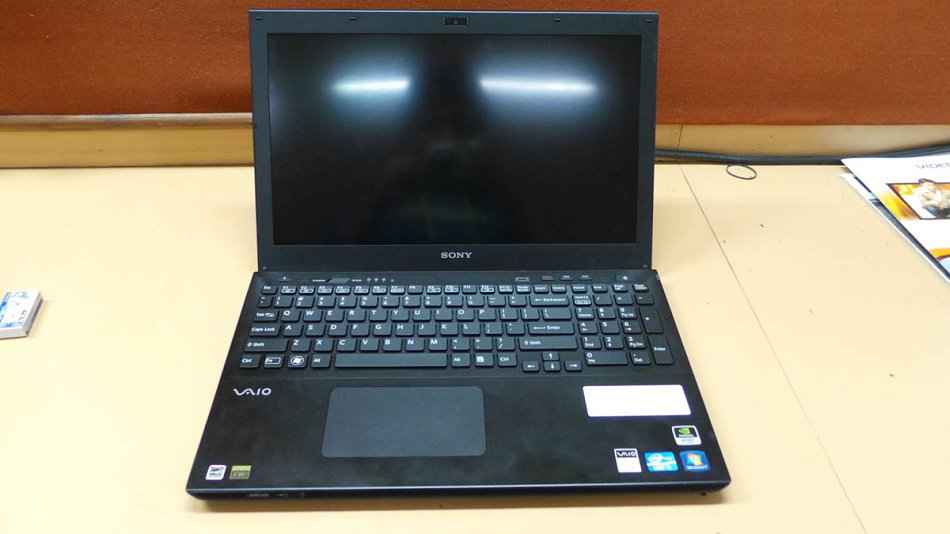 |
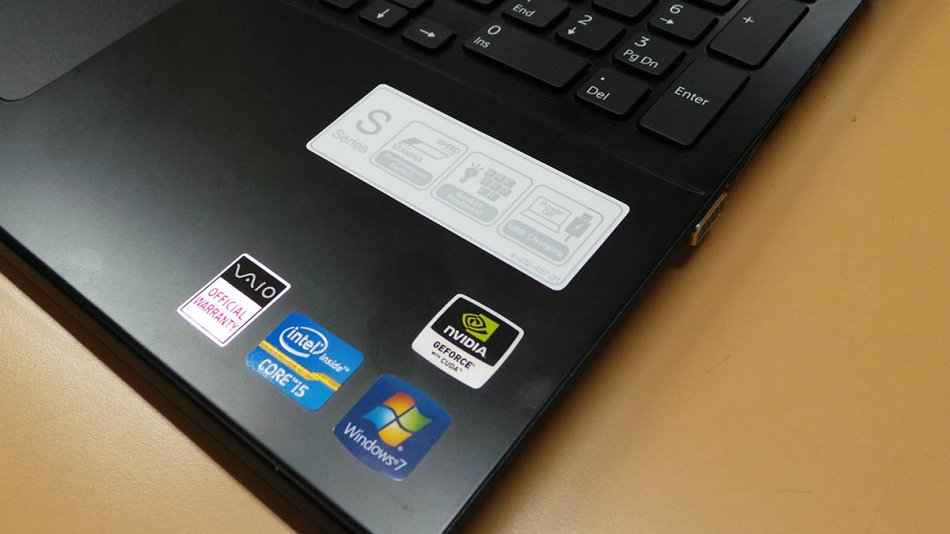 |
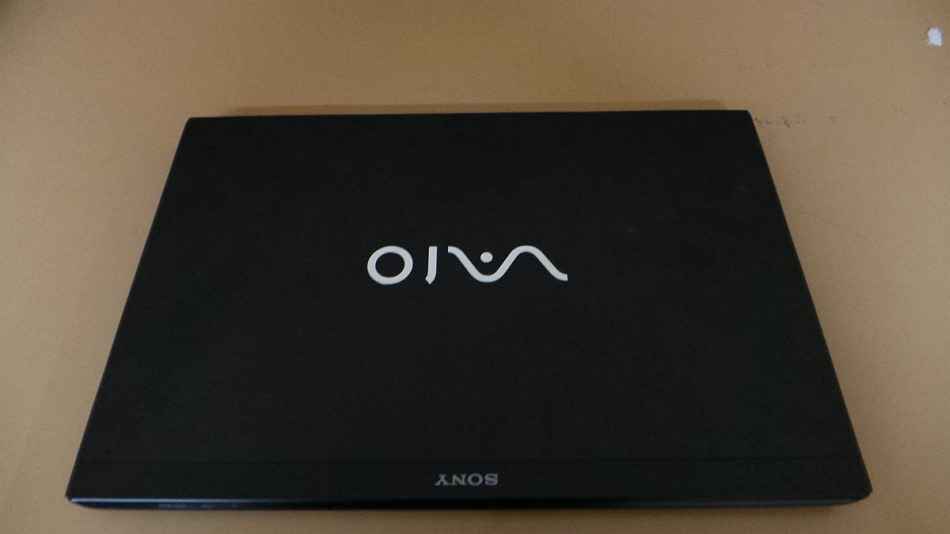 |
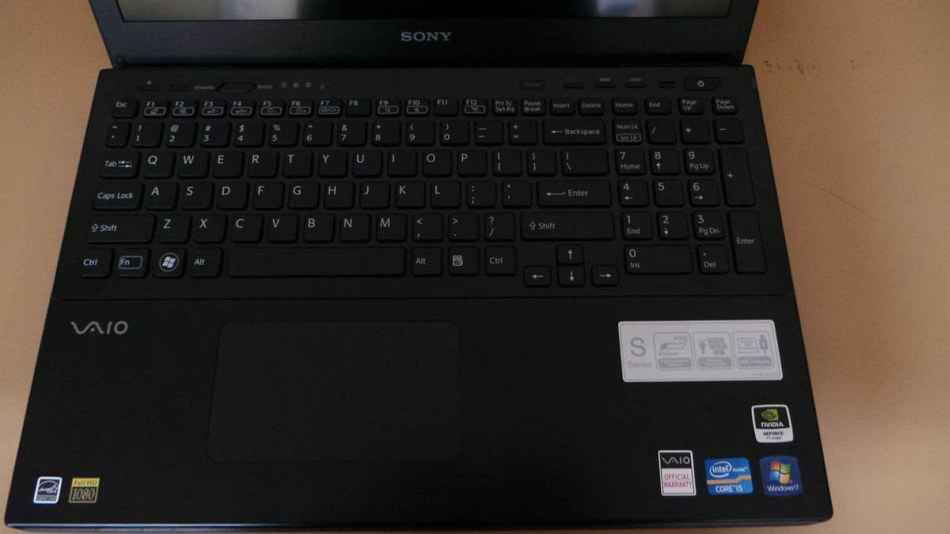 |
Now for the bad parts! The Sony Vaio SVS15115FNB’s lid does seem rather thin and if you put some weight on it, or it has an accidental brush against a hard object, then it looks like it is prone to breaking. Sony has done its best by reinforcing the lid with carbon fiber, because the idea always was to keep it as thin as possible. However, there is no harm in being safe and not subjecting the lid to any sudden impacts.
Overall, the plastic used is fairly high quality, and the carbon fiber reinforcements ensure that the Vaio S doesn’t disappoint, at least in terms of rigidity. However, there seems to be that missing element that would have made the Vaio S look premium. Not to say that it looks ugly or overpriced at the moment, but doesn’t have the unique punch to make it stand out in a crowd. But, then again, it does get the work done, in a fairly stylish way.
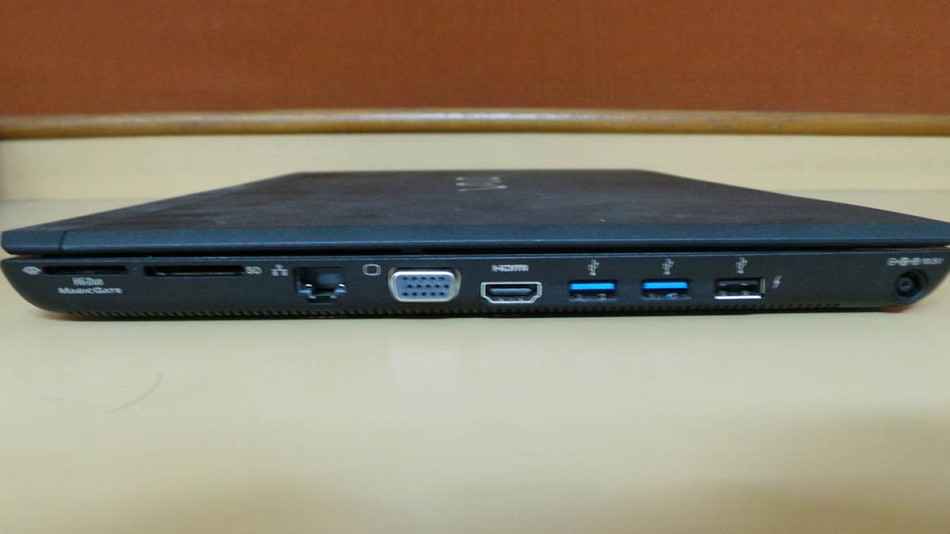 |
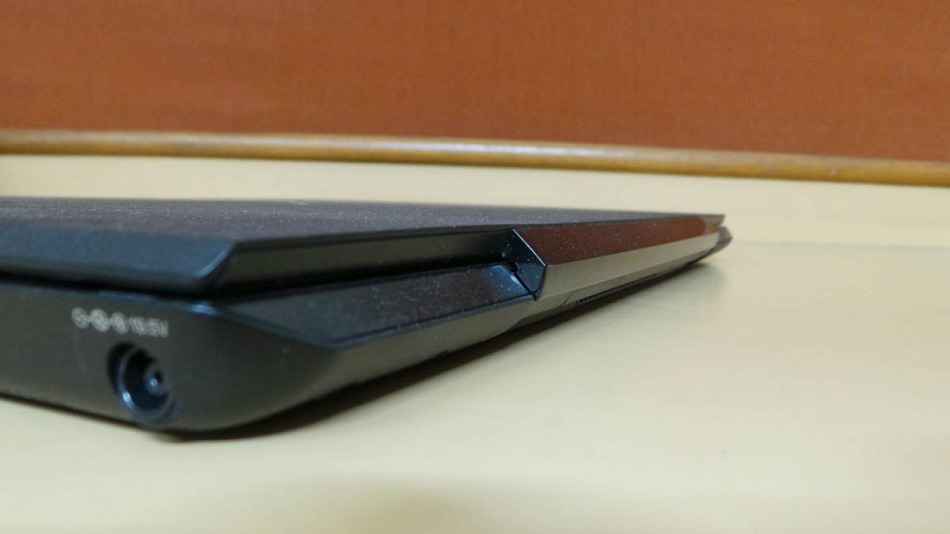 |
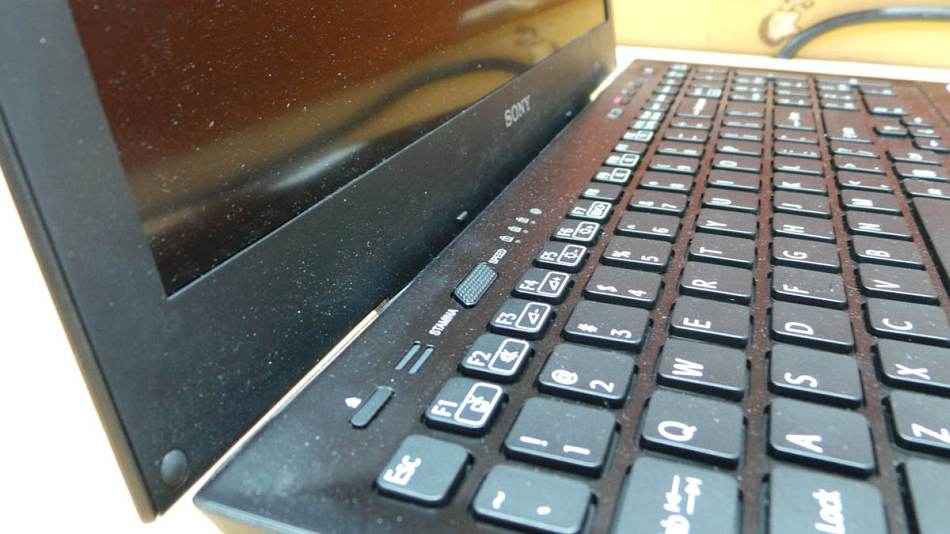 |
 |
Features & Specifications
We will get to the more interesting bits in a moment, but first, the customary run through the spec sheet. The test Sony Vaio SVS15115FNB unit that we received was powered by an Intel Core i5–3210M processor, clocking at 2.5GHz. Turbo Boost will take it to 3.1GHz. To help it along, there is 4GB of RAM, and quite frankly, we expected more memory. For around the same price, you have the Lenovo IdeaPad Z580 that is powered by a Core i7 processor and 8GB of RAM. We will compare the performance in the next section, but at least on the spec sheet, the Sony Vaio does seem to have a fairly run-of-the-mill setup.
For your storage needs, there is a 640GB hard drive on the Sony Vaio SVS15115FNB. The Lenovo IdeaPad Z580, on the other hand, has a 1TB drive. The machine comes preloaded with Windows 7 Home Premium (64-bit), but both are very much upgradable to Windows 8 under the current heavily discounted upgrade scheme.
Graphics capabilities of both machines are rather robust. The Sony Vaio SVS15115FNB has an Nvidia GeForce GT640M (2GB) and switches between this and the Intel HD4000 during performance and stamina modes respectively.
The real unique point of the Vaio S is the Full HD IPS display. For those of you who are very finicky about the quality of display, or need the best performance because your work profile demands it, this display will suit rather well. From the outset, the brightness levels are impressive, and colours do not get washed out as you go up the brightness graph. Speaking of which, the moment you switch it on, the vividness and colour separation / distinction is very impressive. Put this side by side with any non-IPS display, even with the same resolution, and the difference in display quality is more than apparent. Text handling is brilliant. The most impressive thing is actually the non-reflective nature of the display. And that really helps when things are not reflected off the screen while working for long durations. The display is possibly the biggest reason why someone would consider the Vaio S, though there are a lot more positives too.
The island keyboard has a dedicated number-pad as well. That real estate was afforded because of the 15.5-inch display. Surprisingly, it took me some time to get used to the layout. That usually doesn’t happen with most laptops with a dedicated number-pad on the right, but this one is apparently slightly differently laid out. The big touchpad will be very helpful if and when you do upgrade to Windows 8.
Performance
With this kind of a spec sheet, the performance part of the Sony Vaio SVS15115FNB was never a doubt. The Core i5 offers scores that are pretty much in the range of laptops with the same processor. The PC Mark 07 score of 2589 is pipped only by the HP Envy m6 that scored 2689 – when we speak of laptops with the same processor.
With a very powerful Nvidia GeForce GT640M graphics on board, you would be correct to assume that this would score fairly well in the graphics benchmark tests. However, surprisingly, that was not the case. The 3D Mark 06 score of 8577 is considerably lower than the Lenovo IdeaPad Z580 (9335 – Nvidia GeForce GT630M), Dell Inspiron 14R SE (12635 – Nvidia GeForce GT640M) and the Toshiba Satellite L850 (10498 – AMD Radeon HD7670M). Just to be sure, we double and triple checked the power settings, the graphics configuration and ensured that the very latest official drivers were installed, but the results remained the same. However, this is not to take away from the fact that the Sony Vaio S can do a decent amount of gaming. But if that is what you really want, then the Lenovo or the Toshiba machines probably make more sense.
However, we are a tad surprised that Sony did not even attempt to play with Lenovo on the spec sheet. The fact of the matter is rather simple – the specs matter more on the shop floor. In the same price bracket, the Lenovo comes with a Core i7 processor and 8GB of RAM, and the Vaio S feels rather underprepared in the face of that.
Battery life, however, really brings the Vaio S back into reckoning. The tested battery life was 300 minutes, which is the maximum we have clocked on any laptop this year. Till now, the HP Pavilion G6 had the best score – 280 minutes. This showing takes the Vaio S pretty close to the ultrabook territory, and with a form factor like this, this is pretty much a win-win situation for most potential buyers.
Bottom Line
The Sony Vaio S-series is a very interesting laptop. For what you pay to get one for yourself, you get a fair mix of performance, very slim profile certain gaming capabilities, excellent battery life and an IPS panel that pretty much takes the cake from all the rivals. If you are still weighing your decision on the specification sheet, then the Lenovo IdeaPad Z580 makes a lot more sense. Otherwise, you should consider the Vaio S, for the best display quality and a full HD resolution.

